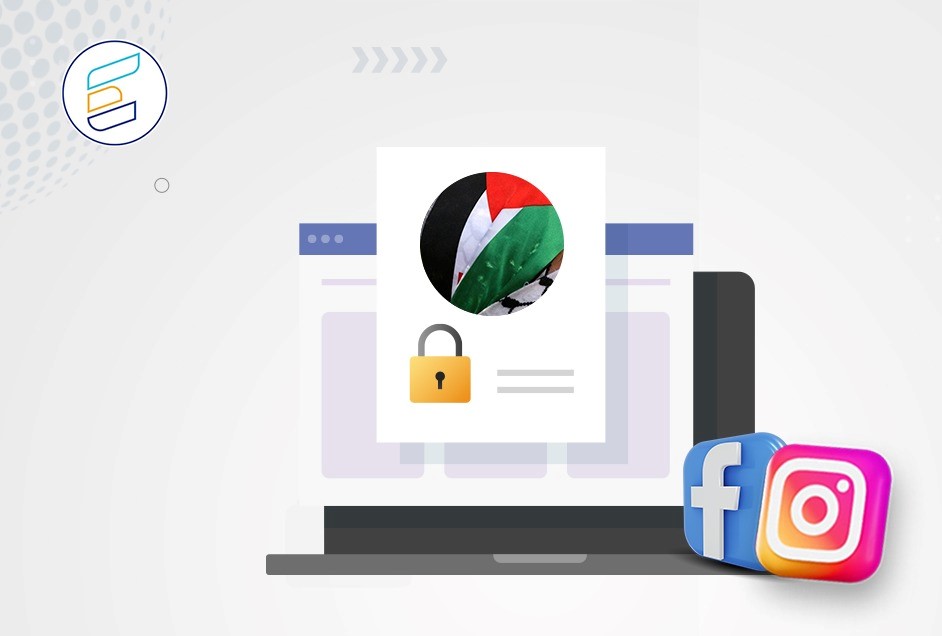The Palestinian social media watch group, Sada Social, said it monitored a number of violations and abuses carried out by the administration of social media sites against Palestinian content during February, documenting more than 30 violations most of which on the Facebook and Instagram platforms, citing double standard in dealing with Palestinian vis-à-vis other content.
It said the two platforms targeted many media and press accounts while covering the events in the Sheikh Jarrah neighborhood of occupied East Jerusalem, and the news of the Israeli army killing of three Palestinian in the northern West Bank city of Nablus.
Meta labeled the videos of the beating and arrest of young Palestinian men and women in occupied Jerusalem as “sensitive content” and hid it, while some accounts that published this content received many restrictions and warnings for violating community standards, which actually means blocking Palestinian content that exposes Israeli occupation crimes, said Sada Social.
“This is an outright targeting of Palestinian content, as tens of thousands of accounts around the world continue to publish violent content that poses a real threat to public safety without being affected by the blocking procedures,” it stressed.
The accusation of exceeding the standards of Meta also affected the accounts that published an obituary for the Palestinians killed by Israel, including the page of Ramallah Governor Laila Ghanam and Minister of Health Mai Alkaila, after the occupation’s army assassination of three Palestinians in Nablus.
“While the social media sites claim that they block Palestinian content as sensitive content or incite violence and terrorism and delete and restrict it, they constantly ignore incitement to kill Palestinians and what the Israeli occupation is doing through official and media accounts and pages on the same platforms,” said the Palestinian social media watch group.
The developments related to the Ukrainian crisis with regard to the digital space came to record a clear failure of the standards of social media platforms in protecting the user audience from violent and inflammatory content, added Sada Social.
The digital spaces have recently been filled with photos and videos from the Ukrainian and Russian crises, which contain weapons, violent manifestations, and footage to mobilize fighters and teach them to manufacture and use weapons, in addition to other footage that provides a detailed explanation and training content for the use of military weapons by civilians.
“These platforms have not taken any action against the thousands of posts and comments urging the fighting in the Ukrainian-Russian war and calling for their joining, but the praise and encouragement of Palestinian resistance fighters are classified as terrorist content by the same platforms,” it said.
It was also observed that photos of Palestinian resistance icons and personalities were used in fabricated content as Ukrainian citizens defying Russian soldiers, and these photos were reported to be removed. “This confirms that the removal and blocking of Palestinian content are basically linked to a political position biased towards the Israeli occupation adopted by social media sites,” said Sada Social, which condemned the policy of double standards faced by the Palestinian user on various social media platforms, “which violate his human and digital rights and prevent him from accessing information and news in light of the continuous restriction of media agencies and activists’ pages and their coverage of human rights violations in occupied Palestine.”
It called for reviewing the standards and tools used by the social media sites under the pretext of providing a safe environment for users, and setting them on the basis of commitment to the equal rights of human beings, regardless of their race or color.


